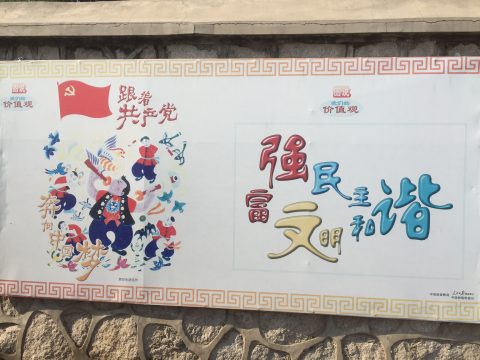
Download
Veranstaltungsort
Deutsches Institut für Japanstudien
Jochi Kioizaka Bldg. 2F
7-1 Kioicho, Chiyoda-ku
Tokyo 102-0094, Japan
Zugang
Anmeldung
The DIJ History and Humanities Study Group is a forum open to scholars working on Japan in any field of the humanities. It is organized by Barbara Geilhorn, Torsten Weber and Isaac Gagné.
Registration Form
We are sorry! Registration for this event is no longer possible.
Between Contributor and Competitor: Recent Trends in how the Chinese Government views Japan
27. Juni 2019 / 18:30 Uhr
Shi Ming, Berlin
How the current Chinese leadership views Japan is not just a question concerning both major countries in East Asia. It is also interwoven with a series of Chinese domestic troubles and crises: how to deal with Japan both as a major contributor to the industrial upgrading of the Chinese economy and as an essential competitor in Asia and beyond; how to handle Tokyo in the light of its ever closer alliance with the United States which aims at containing China’s rise; how to fulfill, in the light of these constraints, the superpower promise that the Chinese Communist Party (CCP) has given to the Chinese people. In 2014, Beijing deliberately excluded Japan, together with the USA, from its strategy known as „One Belt One Road“, in order to counter China’s perceived oceanic encirclement by the foreign policies of Washington and Tokyo. In the meantime, the CCP has factually downgraded the „One Belt One Road“ Strategy to the „Belt and Road Initiative“, which is open to anyone who wants to do business with China. In this new effort, the CCP-leadership tries everything possible to involve Japan, which is increasingly seen by Chinese political think-tanks as „becoming some sort of a leading and bridging element for East Asia and beyond“ (Zhou, 2018). Does this mean that Beijing has factually already accepted Japan’s ambitions as a ‘leading power’?
This presentation will outline Beijing’s internal predicaments and its changing perspectives on Japan. It will also address Chinese concerns about Japanese efforts to involve a growing number of European countries into the geopolitical competition with China, for example in the South China Sea.
SHI Ming is a Chinese journalist and analyst born and raised in Beijing. Majoring in German Studies and Law, he moved to Germany in 1990. He is currently based in Berlin. Shi is a leading intellectual authority on contemporary China and his views have been published in major European media, including ARD, ZDF, Frankfurter Allgemeine, Sueddeutsche, Le Monde diplomatique, and Cicero.